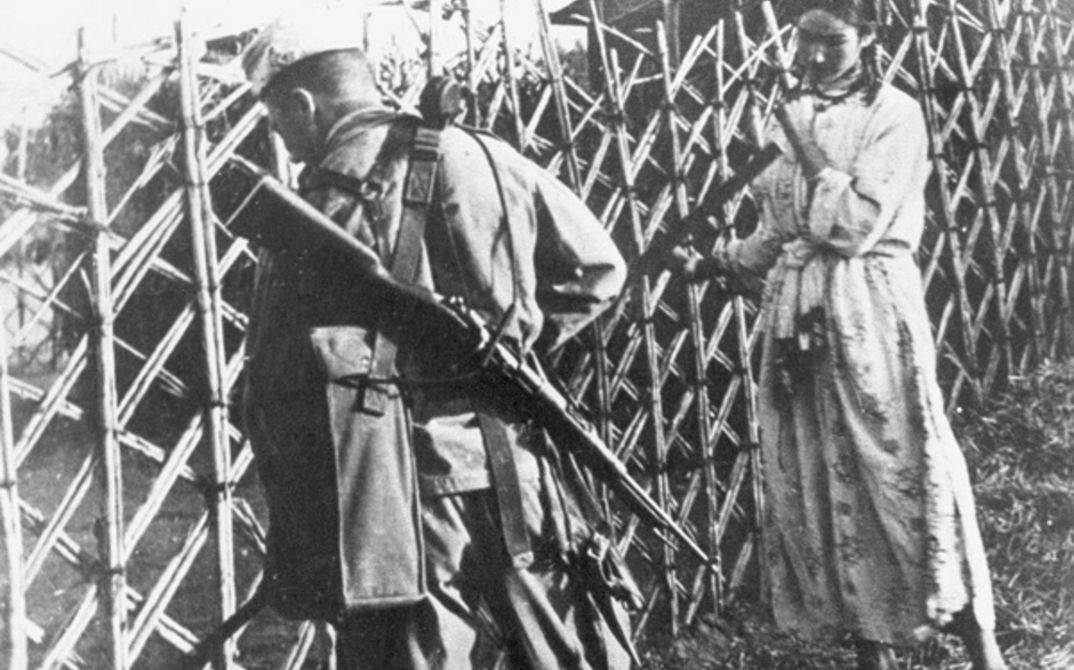For further information please download the film sheet (PDF).
After the establishment of a national television broadcast channel in the 1970s, the Centre Cinématographique Marocain (CCM) shifted its production mandate to generate content for it. The same decade also marked the beginning of political repression, strong policing of artistic expression and intolerance of dissent. Bouanani and R’chich were filmmakers working at the CCM who were regarded as subversive provocateurs and rarely allowed to direct films. Crafted exclusively from film archives, Thakirah Arba’at ‘Ashar (1971) was Bouanani’s first feature, but the censors forced him to cut it down from 2 hours and 18 minutes to 24 minutes. Abdelmajid R’chich’s Al-Boraq (1973) is a short fiction about a man who fights against the seizure of his land by powerful developers. And lastly, Bouanani’s Al-Manabe’ al-Arba‘a (1977), a very low-budget fantastical adaption of a poetic fable, features his wife Naïma Saoudi, who also worked as an art director and set designer. It is his only film in colour, which convinced him that his vocation was to work in black and white. (Rasha Salti)
Short Films 2
Thakirah Arba’at ‘Ashar (Mémoire 14)
Ahmed Bouanani, 1971
Production: Centre Cinématographique Marocain (CCM), Rabat
Running time: 24 min
Language: French
Al-Boraq (Shining)
Abdelmajid R’chich, 1972
Screenplay: Abdelmajid R’chich
Camera: Mohamed Sekkat
Cast: Mohamed Majd, Mohamed Miftah, Fouzia Alaoui, Abdeljabaar Louzir
Running time: 27 min
Language: Arabic
Al-Manabe’ al-Arba‘a (Les quatre sources)
Ahmed Bouanani, 1977
Production: Centre Cinématographique Marocain (CCM), Rabat
Screenplay: Ahmed Bouanani
Camera: Mohamed Laalioui
Cast: Kabir Benbich, Naïma Saoudi, Noufissa Doukkali, Latifa Souibli
Format: 35 mm, Colour
Running time: 35 min
Language: Arabic
